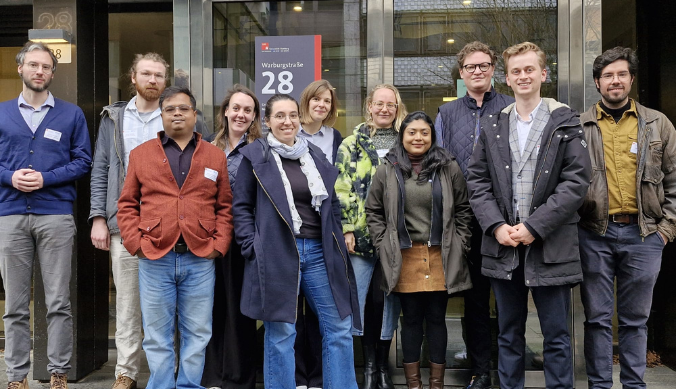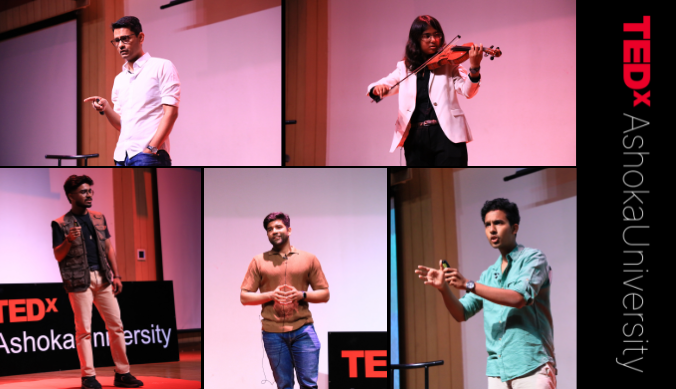Psychological Study of Space Exploration: At the Crossroads of Astronomy and Psychology
The article examines the psychological challenges of space exploration, investigating the impact of microgravity, chronic stress, and sleep schedules on astronauts' cognitive functions
Psychology is the scientific study of the brain and its behaviour. In modern cognitive psychology, “cognitive processes” refers to mental processes of the brain such as thinking, decision-making, acquiring knowledge, manipulating knowledge, etc. In space exploration, most research deals with neurocognitive questions about astronauts, while a few others also answer social psychological questions about the behaviours of astronauts. As humans prepare for long and difficult travels across the universe, it is important to study how this travel and its environment might affect their brains and what effects it might have on their cognitive behaviours. This article aims to familiarise the reader with the kinds of questions that are being asked concerning astronaut psychologies and what approaches and research methodologies researchers have employed to answer these questions.
Though humans have been adapting to different harsh environments on Earth since our evolution, adapting to conditions in space is a different story altogether. In space, on the physiological level, the human body has to adapt to no gravity or microgravity conditions that affect brain function. Moreover, the individual is under constant physical pressure, radiation, acceleration and loud noise. Mentally, the individual has chronic high-stress levels, prolonged social isolation, etc. Hence, it is interesting to see the effects of these highly unfavourable conditions on astronauts’ brains. Schneider et al. (2008) studied the effects of weightlessness on the brain using EEG imaging. They found the brain areas that show changes in activity during weightlessness. Interestingly, they also found that these changes were a function of the emotions felt during weightlessness rather than the direct physiological hemodynamic changes themselves (2008).
Some studies showed that core cognitive functions are not degraded during spaceflight (Manzey & Lorenz, 1998). However, dual-task performance seemed to be particularly affected in space and the mediating factor was identified to be adaptations to weightlessness (1998). That could have implications in designing tasks and schedules for astronauts, especially during their adaptive period in space.
General moods and cognitive functions are found to be stable in astronauts across long flights, although the first two weeks in space as well as back on Earth have been identified as critical in adapting to both environments (Manzey et al., 2010). Researchers also claim that astronauts are consistently found to have feelings of being under chronic mental pressure (2010). That can have implications on the quality of work produced or the overall social dynamics of the mission.
Another important aspect of psychology that is known to govern brain function is sleep. Stampi (1994) studied how sleep schedules affected the well-being and cognitive capacities of astronauts. It was found that the closer the astronauts were able to maintain their circadian rhythms as they were back at home, the better their cognitive performance. However, it was found that for most astronauts, work schedules were not aligned with their natural circadian rhythms, creating performance degradation (1994).
Studies in astropsychology have been a combination of controlled trials, interviews, data from log books and journals, and some imaging techniques such as EEG. The scarcity of participants who can be subjects for space research and the extensive extraordinary training the existing participants go through can affect the results of space research. For example, given the high levels of mental and physical training that astronauts go through to travel in space, they are predisposed to perform better than controls on most standard psychometric tests. One instance is how in a classic emotional Stroop test, astronauts perform better, predictably because of their extensive training in being in control of their emotions in stressful environments.
Hence, space research follows a revised methodology—statistically and procedurally—to match these peculiar conditions. These studies help us answer how the brain functions in space and eventually might help us answer how to train our astronauts to optimise their cognitive capacities and keep them physically and mentally fit when they are in the space environment.
References
- De la Torre G. G. (2014). Cognitive neuroscience in space. Life (Basel, Switzerland), 4(3), 281–294. https://doi.org/10.3390/life4030281.
- Manzey, D., & Lorenz, B. (1998). Mental performance during short-term and long-term spaceflight. Brain Research Reviews, 28(1-2), 215–221. https://doi.org/10.1016/s0165-0173(98)00041-1.
- Manzey, D., Lorenz, B., & Poljakov, V. (1998). Mental performance in extreme environments: results from a performance monitoring study during a 438-day spaceflight. Ergonomics, 41(4), 537–559. https://doi.org/10.1080/001401398186991.
- Schneider, S., Brümmer, V., Carnahan, H., Dubrowski, A., Askew, C. D., & Strüder, H. K. (2008). What happens to the brain in weightlessness? A first approach by EEG tomography. NeuroImage, 42(4), 1316–1323. https://doi.org/10.1016/j.neuroimage.2008.06.010.
- Stampi, C. (1994). Sleep and Circadian Rhythms in Space. The Journal of Clinical Pharmacology, 34(5), 518–534. https://doi.org/10.1002/j.1552-4604.1994.tb04996.x.
(Written by Anukriti Bhargava (UG’24), Ashoka University)
Study at Ashoka













